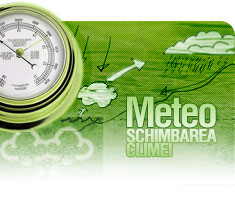https://unfccc.int/news/costa-rica-commits-to-fully-decarbonize-by-2050
With a 95% share of renewables in its electricity matrix and solid achievements to prevent deforestation - 52 % of the national territory is covered by forests - the Central American nation of Costa Rica is already a world leader in terms of environmental sustainability. However, Costa Rica wants to go further and be an international example of climate action and ambition.
Costa Rica has adopted a plan to achieve a zero net emissions economy by 2050, in line with the objectives of the Paris Climate Change Agreement.
"Decarbonization is the great challenge of our generation and Costa Rica must be among the first countries to achieve it, if not the first," said Costa Rican President, Carlos Alvarado Quesada on February 24 during the presentation of the 2018-2050 National Decarbonization Plan in the capital, San José.
With the goal of reducing greenhouse gas emissions, the plan includes significant measures in basic infrastructure and economic sectors such as the public and private transport, energy, industry, agriculture, waste management and soil and forest management.
In addition, the plan establishes a roadmap for modernizing the economy, generating jobs and boosting sustainable growth.
Costa Rica will incorporate these measures in its new national climate action plan to be presented to UN Climate Change (also known as the United Nations Framework Convention on Climate Change, or UNFCCC), by 2020.
In 2020, the signatories of the Paris Agreement are to present a new round of their climate action plans, formally know as nationally determined contributions (NDC). The first round of NDCs was submitted ahead of the approval of the agreement in 2015.
These contributions describe each country's plans to help achieve the ultimate goal of the agreement, which is to limit the increase of the global average temperature as close as possible to 1.5 degrees Celsius, thereby preventing the worst impacts of climate change.
Costa Rica's plan includes concrete goals in strategic sectors such as transport, which is currently one of the country's major sources of greenhouse gas emissions. By 2035, 70% of all buses and taxis are expected be electric, with the goal of full electrification by 2050. As for private transportation, measures will be taken so that users gradually abandon fossil-fueled cars and opt for zero-emission vehicles and car-sharing.
As for electricity production, which currently comes to 95% from renewable sources (mainly hydroelectric power), the country wants that percentage to reach 100% by 2030. In addition, measures will be taken to ensure that, by 2050, electricity will be a primary energy source for the transport sector, residential, commercial and industrial usages.
The plan envisages measures to reduce the carbon footprint of the national agriculture sector and to increase the forest area from the current 52% to 60% by 2030.
The presentation of Costa Rica's Decarbonization Plan was attended by Mexican diplomat Luis Alfonso de Alba, special envoy of the UN Secretary-General for the Climate Action Summit to be held in New York on 23 September. This was very fitting, given that the objective of the Summit is for nations to increase the levels of ambition of their climate action plans.
Ambassador De Alba thanked Costa Rica for the leadership it is demonstrating with these long-term climate goals. De Alba invited President Alvarado to use that leadership in the region to encourage other Latin American leaders to present equally ambitious targets when they meet in September in New York.
Costa Rica has meanwhile received numerous congratulatory messages from international leaders from around the world, including from UN Secretary-General, António Guterres, transmitted by Ambassador De Alda during the event; that of former US Vice President Al Gore; Spanish President, Pedro Sánchez; the UN High Commissioner for Human Rights, Michelle Bachelet; and the UN Executive Secretary for Climate Change, Patricia Espinosa.
A decarbonized Costa Rica "for the People".
The objective of the plan is to achieve "a decarbonized Costa Rica for the people," said Carlos Alvarado during the event. "Climate change is the main challenge we have as a country and as humanity. It is our main threat. All sectors of society must participate to face the great challenge which is to move towards a decarbonized world," he said.
Costa Rica's plan takes a holistic approach, since decarbonization will require a profound transformation of economic and social systems. For this reason, the plan will be supported by a fiscal reform, a reform of the institutions involved in the decarbonization of the country, progress in digitalization and connectivity, smart cities and promotion of telecommuting, among other steps.
The President of Costa Rica said that this transformation would only be possible with the involvement of all citizens. For this, education measures will be taken to promote behavioral change.
The details of the Decarbonization Plan can be seen here (Spanish)
See also the video of the presentation of the Decarbonization Plan of Costa Rica.



 Română
Română English
English


